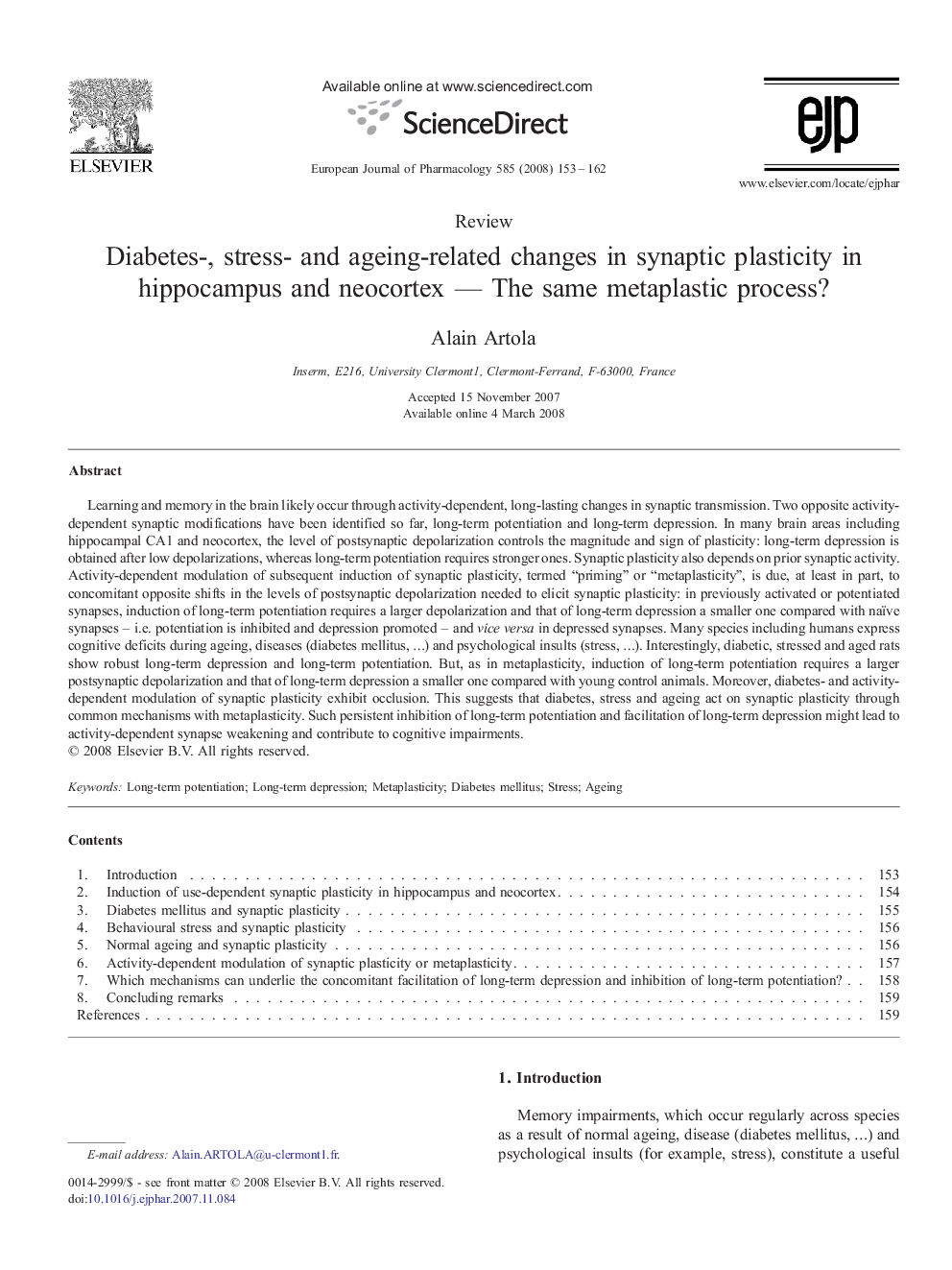| کد مقاله | کد نشریه | سال انتشار | مقاله انگلیسی | نسخه تمام متن |
|---|---|---|---|---|
| 2535222 | 1559113 | 2008 | 10 صفحه PDF | دانلود رایگان |

Learning and memory in the brain likely occur through activity-dependent, long-lasting changes in synaptic transmission. Two opposite activity-dependent synaptic modifications have been identified so far, long-term potentiation and long-term depression. In many brain areas including hippocampal CA1 and neocortex, the level of postsynaptic depolarization controls the magnitude and sign of plasticity: long-term depression is obtained after low depolarizations, whereas long-term potentiation requires stronger ones. Synaptic plasticity also depends on prior synaptic activity. Activity-dependent modulation of subsequent induction of synaptic plasticity, termed “priming” or “metaplasticity”, is due, at least in part, to concomitant opposite shifts in the levels of postsynaptic depolarization needed to elicit synaptic plasticity: in previously activated or potentiated synapses, induction of long-term potentiation requires a larger depolarization and that of long-term depression a smaller one compared with naïve synapses – i.e. potentiation is inhibited and depression promoted – and vice versa in depressed synapses. Many species including humans express cognitive deficits during ageing, diseases (diabetes mellitus, …) and psychological insults (stress, …). Interestingly, diabetic, stressed and aged rats show robust long-term depression and long-term potentiation. But, as in metaplasticity, induction of long-term potentiation requires a larger postsynaptic depolarization and that of long-term depression a smaller one compared with young control animals. Moreover, diabetes- and activity-dependent modulation of synaptic plasticity exhibit occlusion. This suggests that diabetes, stress and ageing act on synaptic plasticity through common mechanisms with metaplasticity. Such persistent inhibition of long-term potentiation and facilitation of long-term depression might lead to activity-dependent synapse weakening and contribute to cognitive impairments.
Journal: European Journal of Pharmacology - Volume 585, Issue 1, 6 May 2008, Pages 153–162